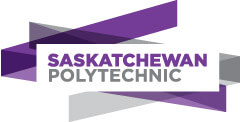About Electronic Systems Engineering Technology Diploma in Saskatchewan Polytechnic
Program Overview
Electronic systems are in everything—computers, robotics, medical electronics, fibre optics, automotive electronics, mobile communications, automation, aerospace and surveillance systems and more. That means your potential job market as an electronic systems engineering technologist is huge. It’s diverse, dynamic and growing. Saskatchewan Polytechnic offers the well-rounded education you need to start a career designing, servicing and troubleshooting systems.
Electronic Systems Engineering Technology is a two-year diploma program offered full time at Saskatchewan Polytechnic, Saskatoon Campus, Idylwyld Dr. You’ll gain knowledge and skills in:
- analog and digital circuits
- automation systems
- data and radio communications
- electronic prototyping
- microprocessors and microcontrollers
- printed circuit board design
- programmable logic controllers
- technical reporting and project management
You’ll develop troubleshooting skills through practical labs, build project management skills and carry out an applied research project. Your studies culminate in hands-on projects that challenge you to design, test and construct your own electronic prototype.
Diploma to Degree
Use your diploma to ladder into an engineering degree at Lakehead University in Ontario or a technology degree at Memorial University in Newfoundland or a mining engineering technology degree at Queen’s University in Ontario.
Subsidize Your Study
Check out the Canadian Forces (CF) subsidized education plan for Telecommunications Specialists in the Navy, Army or Air Force. The plan covers your education and training costs while in school, and salary, vacation, medical and dental benefits. Contact your local CF Recruiting Centre to learn more.
Career and Salary Information
Your Career
You’ll be job ready on graduation. First jobs are most often in the design, development, production, installation, sales and service of electronic products and systems. Employers include industrial facilities, manufacturers, commercial organizations, communications providers, resource companies and public agencies. You might create a career for yourself as an independent consultant or be part of a team in a large organization.
Academic qualification equivalents:
- Grade 12 with a minimum 60% in each of the following subjects: English Language Arts A30, English Language Arts B30, Chemistry 30 and Pre-Calculus 30
English language requirements (one of the below):
- IELTS : Overall minimum score of Band 6.5 with a minimum score of 5.0 in each component.
- TOEFL : An overall minimum score of 81 on the Internet-based Test of English
- PTE : A minimum score of 63 with minimum component scores of 50.
Saskatchewan Polytechnic Highlights
| Type |
Public |
| Campus Setting |
Urban |
| Application mode |
Online and Paper mode available |
| Graduation rate |
62% |
| Acceptance rate |
96% |
| Number of Students |
16,008 |
| Overall cost of living |
14,762 CAD |
| Academic calendar |
Semester based |
| % of International students |
6% |
| Number of campuses |
4 |
| Medium of instructions |
English |
| Undergraduate Tuition fee |
14,044 CAD |
| Postgraduate Tuition fee |
16,426 CAD |
| Cost of living |
694 -1147 CAD per month |
Saskatchewan Polytechnic First-Year Tuition Fees And Living Expenses For International Students
Over the course of one academic year, the following graph displays tuition and living expense estimates in Canadian currency for one full-time international undergraduate student. Please bear in mind that these are only estimates; actual pricing will vary depending on your needs and preferences. Other factors to consider include currency changes, visa and study authorization fees, and vacations back home.
- For international students, the overall fees will range from:-
| Particulars |
Amount |
| Administrative fees |
50.00 to 150.00 CAD |
| Application fees |
150 CAD |
| Student association fee |
95.00 to 445.00 CAD |
| Non-refundable fee at the start) |
1,000 CAD |
| Tuition fee range |
6,195 to 18,089 CAD |
| Laboratory fee |
100.00 to 409.00 CAD with no fees for
some courses which do not have a lab service. |
| Books and Supplies |
200 to 3,725 CAD |
| Technology fee |
50 to 146 CAD |
- For a student of Saskatchewan Polytechnic the required financials (Cost of Attendance) can be:-
| Description of Financials |
Amount in CAD |
| Average cost of tuition |
11245.77 CAD |
| Cost of living |
10799.39 CAD |
| Application fee |
150 CAD |
| Estimated total (per year) |
22,195.16 CAD |
